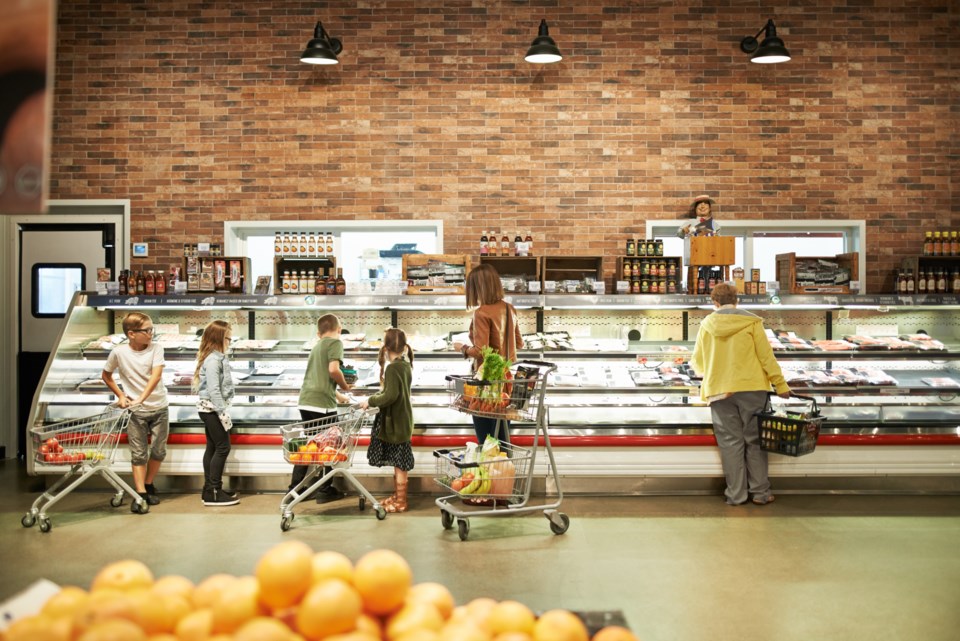The rhetoric around inflation and increasing food prices has become a , particularly for those in opposition to the incumbent government.
Even pundits and non-profit organizations are . This begs the question: Should governments take steps to reduce food prices? And more importantly — can they?
This is not to say that food inflation doesn’t matter. It has clear . While , there are some steps the government can take.
Putting a limit on food prices
The most obvious step the government could take is regulating food prices using . This is virtually unheard of in North America, but has , most recently in Malaysia where the government .
While this might initially seem like a good idea, price ceilings actually end up taking money out of the system. If that money isn’t replaced (i.e. ), products either stop being produced or make their way to other, more profitable markets. Currently, the Canadian government can’t afford these kinds of subsidies because of the .
There are some products, like dairy and poultry, that have domestic production controls. Farm prices are set based on a model, meaning farmers earn back the amount of money it costs to produce their products. If grocery prices were capped, retailers and processors would make less money and less dairy products would make it to store shelves.
Price ceilings are impractical for food. They are unlikely to achieve much and end up hitting farmers, processors and retailers the hardest. In the long run, they end up reducing access to products and stifling innovation and research investment.
Limiting food exports
In some countries, governments have chosen to limit exports — meaning goods must be sold domestically — as a way of reducing food prices. after wheat prices increased following Russia’s invasion of Ukraine. While this is good for domestic consumers, it puts the burden on farmers who could stop production in favour of selling unregulated products.
Export taxes can also be used in place of export controls. While these stabilize domestic prices, , who get lower prices, and importing countries, who face higher prices.
Canada, as a , cannot afford to let its reputation as a trusted exporter be compromised. In addition, limiting or taxing exports would only have small impacts on domestic prices, but would negatively impact Canadian producers and export customers.
For countries that import food, , the reduction of import duties can also help to reduce domestic prices. Import duties are often used to protect domestic producers. For the most part, Canada does not have high tariffs on food products, with the exception of supply-managed products, so this approach is not broadly applicable.
Some U.S. states are . In Canada, most retail food items are not taxed, so this is not an option, although a similar tax is . One critique of this approach is that it benefits those that spend the most, rather than those that need it most.
What can governments actually do?
Another option could be to deal with the root causes of the inflation. However, many of these factors — like , and — are beyond the control of the Canadian government.
There has been and about implementing a grocery code of conduct for regulating how large grocery companies interact with their suppliers. While a code might benefit grocers and their suppliers, it is unclear if it would actually lower food prices for consumers.
While there is not a lot that governments can do about food prices, policy makers can still provide broader economic relief. — they are being squeezed not only by food price increases, but by and .
Income support for those with lowest incomes would hep reduce the burden of rising costs of living. Broader tax relief could also take the pressure off for the middle class, but tax relief is less effective for low income earners that pay little tax. Targeted programs, like the , could also increase food access for vulnerable populations.
Politicians who criticize incumbent government for rising food prices should be challenged to provide real proposals that would differentiate them. This is not an easy fix and we shouldn’t be pretending it is.
![]()
Michael von Massow receives funding from a variety of organizations including the Ontario Ministry of Agriculture and Food, Genome Canada, and Protein Industries Canada.


